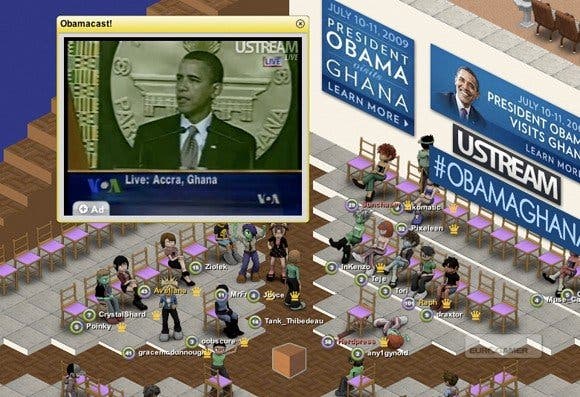Metaplace's Raph Koster
The MMO legend on the now-defunct Metaplace and the future of virtual worlds.
Editor's note: This interview was conducted in mid-December last year. Shortly after we spoke to Raph Koster, it was announced that Metaplace, which much of the interview is about, would shut down on 1st January. However, we thought that Koster's comments were still interesting in light of that news - perhaps even more so - so we decided to run the interview in its original form. We also contacted Koster for a comment on Metaplace's demise, and he had this to say:
"We here at Metaplace have been working very hard over the last several years to create an open platform allowing anyone to come to a website and create their own virtual world. Unfortunately, it has become apparent in the last few months that Metaplace as a consumer user-generated content service is not gaining the traction necessary to become a viable product. This requires a strategic shift for our company... Though making this announcement greatly saddens us, know that Metaplace Inc. isn't about to go away. In fact, we have some pretty exciting plans to announce in the not too distant future."
Raph Koster wants to give MMOs to the people. Having been deeply involved in the MUD community prior to becoming the lead designer on Ultima Online and creative director of Star Wars Galaxies - and later chief creative officer at Sony Online Entertainment - he's certainly familiar with the old way of doing things. MMOs are big, expensive, and their creation is inaccessible to anyone other than the cash-marinated and the insanely over-ambitious. Koster's solution to this is to go small-scale: create a tool called Metaplace that anyone can use to forge any sort of virtual world they like, and let them run with it. It's designed to be "platform agnostic", so one could also conceivably design a virtual Den of Albino Lizardman Iniquity such that it could be surreptitiously accessed on an iPhone. What would the EverQuest widows think?
Metaplace's core idea is to enable anyone to have a virtual place of their own, for their own purposes. Users constantly surprise us with their creativity in designing worlds that allow for everything from showcasing music to offering political commentary. We've had an educational tool built by middle-schoolers about wetlands reclamation and another world was a jewellery storefront as well as an interactive exploration of the Tarot. One of Metaplace's greatest features is its versatility: there are countless ways in which users can have their vision realised through Metaplace.

My hope is that by democratising the creation of virtual worlds, it will enable the medium to come into its full potential. Right now, they cost too much to make and are too hard to make, and so we only get to see what well-funded big companies create, as opposed to what uses ordinary people would put them to.
Metaplace has always aimed to gradually grow, and that's what we're doing. To build our momentum, we have continued to add new features. One of the more recent additions, and a significant industry breakthrough, is the ability for any user to easily embed Metaplace into any webpage. They can now add their own virtual world to a webpage with the same ease as putting up a YouTube video. This breaks down the remaining barriers between virtual worlds and the rest of the web, allowing worlds to be easily accessed and shared anywhere.
